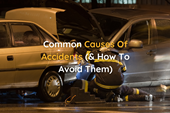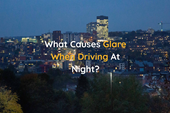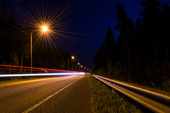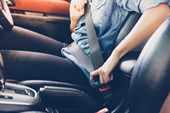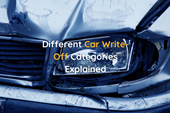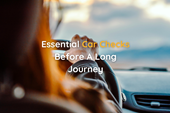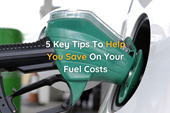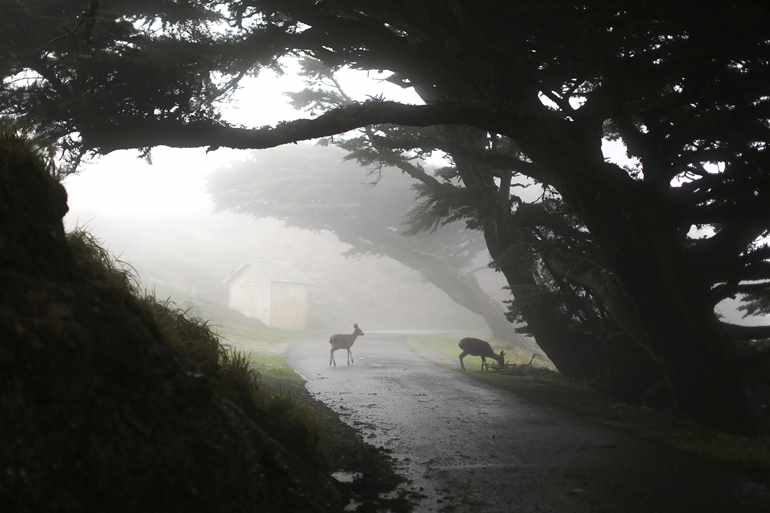
What should you do if you hit an animal while driving?
Even the most careful of motorists can face challenging situations on the road. Including accidentally hitting an animal that runs in front of your vehicle. This is especially common on country roads, when wildlife dashes in front of your wheels, or in residential areas where cats roam freely and dogs escape from family homes.
Apart from the distress this type of accident causes, you may also be unsure of what to do when you hit a pet or wild animal in your car. This short and informative article explains the steps to follow after your vehicle collides with an animal.
Safety first - checks and rules for RTAs involving animals
Road traffic accidents that involve animals have different legal requirements, depending on the type of creature. However, it is recommended that you do the following things as soon as you realise you have hit anything as you are driving:
- Stop safely, as quickly as you can
- Switch off your engine
- Turn your hazard lights on, to warn other drivers that there is something on the road
- Check that you and your passengers are okay, and weren’t injured during the collision
- Exit the car (with care if it’s a busy road) and approach the animal
- Check both its type, and status
- Report the incident to the appropriate authorities.
"Hitting a large animal such as a deer, cow or horse is not only distressing but also potentially a source of serious damage to your bodywork and engine."
What should you do with an animal your car hits?
It’s a natural instinct to go up close to an animal you’ve hit with your car and try to physically help it.
There are two main reasons this is not always a good decision. Firstly, if it is on or near a road you could be putting your own safety at risk. Secondly, injured animals can become defensive and therefore aggressive when you try to help them. For example, dogs may bite, and other creatures may struggle to get away from you, injuring themselves further.
So, when you hit an animal with a vehicle it is usually best to leave the response to the proper authorities.
Read more: What Should You Do If You're Involved In A Car Accident?
Who to notify when you collide with an animal while driving
Do you always need to tell the police when you hit an animal with your vehicle? You are legally obliged to tell the police when your car hits a horse, dog, cow, sheep, pig, goat or donkey/mule.
Mention has already been made of the fact that rendering first aid to animals on the road is often best left to the professionals. Here are important UK phone numbers to help you find assistance following road traffic accidents involving animals:
For England and Wales - RSPCA Tel: 0300 1234 999
For Scotland - Scottish Society for the Prevention of Cruelty to Animals Tel: 03000 999 999
For Northern Ireland - Ulster Society for the Prevention of Cruelty to Animals Tel: 028 3025 1000.
Some local areas have teams of volunteers or community vets who deal with lost or deceased pets too, and you can often contact these via social media.
If it is safe to do so, you may want to check a deceased cat for a collar or tag, so you can contact the owner directly, as the police don't need to be informed.
Assessing the damage to your car
Once you have taken the above steps following a collision with an animal in your vehicle, you need to work out if your car, bike or truck is damaged.
Remember, you have a legal obligation to make sure your vehicle is roadworthy and safe at all times. If you have any suspicion that the incident has created a risk, you must call out a road recovery or repair service.
This is the sort of incident that insurance companies need to be updated on, too.
If you have cosmetic damage to your vehicle, having a good level of cover under scratch and dent insurance should enable you to progress remedial bodywork with only your excess to find.
What if your car is a write-off after a major RTA with an animal? Hitting a large animal such as a deer, cow or horse is not only distressing but also potentially a source of serious damage to your bodywork and engine.
Major repairs or a replacement vehicle should be covered by your insurance. If enough damage occurs the car could be declared a total loss, where the insurance company deems the vehicle too costly to repair. If this happens, they'll usually offer you a settlement figure equivalent to the value of the car at the time, not necessarily the amount you still owe, or the amount it costs to replace it. In some cases this can be a major issue, especially if you're in negative equity. Gap insurance can help, as this makes up the difference between your insurance pay out and the amount you still owe.
Drive safe!



